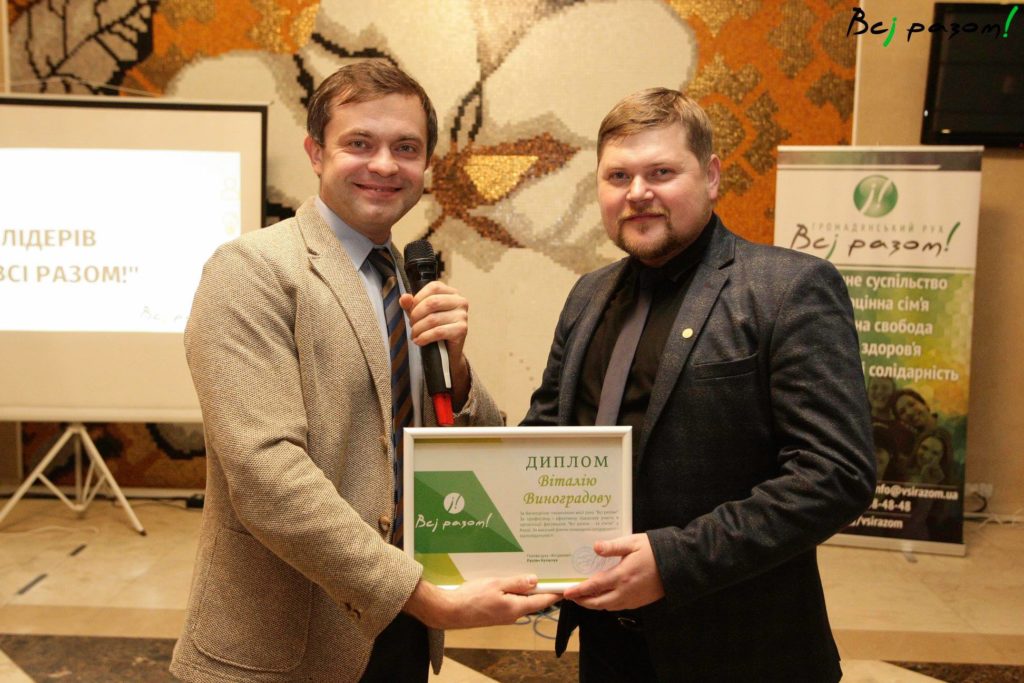Hundreds of people—including the dean of an evangelical seminary—were found massacred by Russian military forces in a suburb of Kyiv.

The Background: Russian armed forces are accused of numerous war crimes—including murder, torture, and rape—as they were withdrawing from the Ukrainian suburb of Bucha. Evidence of the massacre was uncovered on Friday, April 1, when hundreds of civilians in the city were found dead.
According to multiple social media reports, the dean of the Slavic Evangelical Seminary in Kyiv, Ukraine, was among the murdered civilians. The body of Vitaliy Vinogradov, a graduate of the Kyiv Bible Institute and the Evangel Theological Seminary, was found on a street in Bucha.
The total number of victims is still unknown. About 280 bodies were found buried in a mass grave in Bucha. Associated Press journalists also saw the bodies of at least 21 people in various spots around Bucha, some around a site that residents said Russian troops used as a base. Some of the victims were found with their hands bound and were shot in the back of the head from close range.
An adviser to Ukrainian President Volodymyr Zelensky said scores of residents were found slain on the streets in what looked like a “scene from a horror movie.”
The Russian Ministry of Defence attempted to deny responsibility for any of the killings, claiming the reports were a “hoax” and suggesting the bodies were placed on the street after Russian troops withdrew. But a review of satellite imagery showed that many of the bodies were in the streets when the Russians claimed to occupy the town.
The accusations also include crimes against women and children. “We have talked to women who were constantly raped by Russian soldiers with their children having to watch it,” says Kira Rudik, a member of the Ukrainian Parliament. “Women whose husbands were killed right in front of them and then they were severely raped. We have seen dead women’s bodies who were raped beforehand and then the Russians tried to burn the bodies.”
Russia has also been accused of using children as “human shields,” placing them on tanks to protect Russian vehicles during their retreat from the area.
“This is not a battlefield,” said Estonian Prime Minister Kaja Kallas, “it’s a crime scene.”
This is not a battlefield, it’s a crime scene.
What It Means: Earlier this week, President Joe Biden said that what had happened in Bucha was a war crime, and that Russian President Vladimir Putin should be tried before an international tribunal.
“You may remember I got criticized for calling Putin a war criminal,” said President Biden. “Well, the truth of the matter—you saw what happened in Bucha. . . . He is a war criminal.”
War crimes are those violations of international humanitarian law that incur individual criminal responsibility under international law. The violation can be a breach of either standards adopted by treaty or of customary international law (i.e., an aspect of international law involving the principle of custom).
There’s no single document in international law listing all actions that can be classified as war crimes. However, such crimes can be found in both international humanitarian law and international criminal law treaties, as well as in international customary law.
Examples of prohibited acts, according to the UN, include murder; mutilation, cruel treatment, and torture; taking of hostages; intentionally directing attacks against the civilian population; intentionally directing attacks against buildings dedicated to religion, education, art, science, or charitable purposes, historical monuments, or hospitals; pillaging; rape, sexual slavery, forced pregnancy, or any other form of sexual violence; conscripting or enlisting children younger than 15 years into armed forces or groups or using them to participate actively in hostilities.
Under the biblical view of justice, as outlined in the Christian tradition of just war theory, war crimes should never be condoned or tolerated.
Just war theory includes three main areas: jus ad bellum (the moral requirement for going to war), jus in bello (the moral requirements for how war is waged), and jus post bellum (moral requirements after warfare is concluded). As Marine Corps Maj. Wade C. Reaves explains, “The US and the international community derive [rules of engagement] from the theory Jus In Bello, the morally proper conduct of war, which provides guidance on how combatants will engage the enemy and non-combatants in hostile situations.” War crimes thus generally fall under the area of jus in bello, since they often entail prohibited means or methods of warfare.
Under the biblical view of justice, war crimes should never be condoned or tolerated.
Almost every country that has engaged in war has had members of their armed forces commit war crimes. But Russia has a history of committing war crimes on an almost unparalleled scale. For example, the Soviets raped an estimated 2 million German women during World War II. Soviet files also attest that Red Army troops raped Russian women after their release from Nazi slave labor camps in Germany.
More recently, reports of rape, arson, torture, and other crimes by Russian soldiers were widespread in Chechnya during 1999 and 2000. “Without bespredel [no limits warfare], we’ll get nowhere in Chechnya,” a 21-year-old Russian conscript told the Los Angeles Times in 2000. “We have to be cruel to them. Otherwise, we’ll achieve nothing.”
Putin was never held responsible for the war crimes in Chechnya. But the world can still attempt to hold him responsible for the evil he has done in Ukraine. Even if the international community is unable to bring him to justice, we must send the message that war crimes against the innocent—like our brother in Christ Vitaliy Vinogradov—will not be tolerated.



